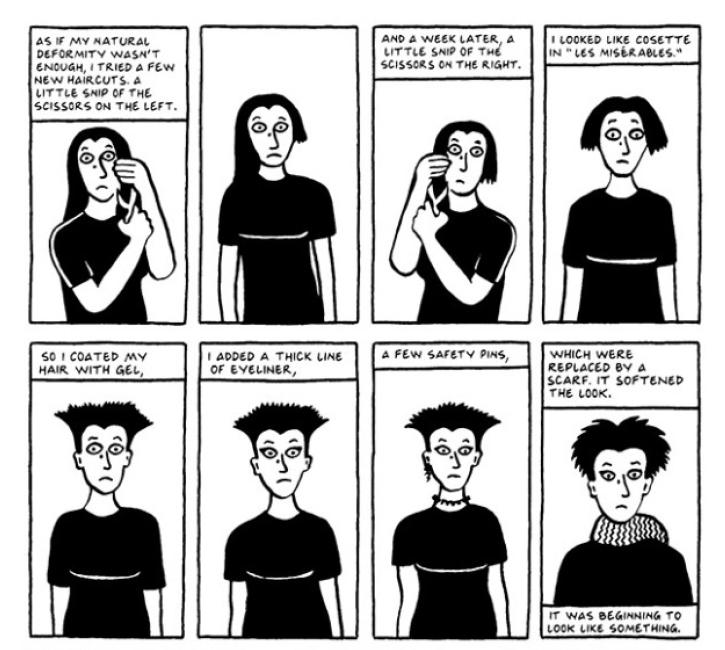The Satrapi family is full of diverse and interesting characters. There is a feminist mother, skeptic father, firm-breasted grandmother, and an uncle who escaped to the U.S.S.R. and was in prison for nine years. There are two maids throughout the story: Mehri, who is like Marji’s older sister and falls in love with a guy from a different social class (it ends in heartbreak, introducing young Marji to the ill-treatment of lower-class citizens in her country), and then another maid who ends up taking Marji to a protest when she is older.
It is these people, as well as family friends, who make Marji become the artist/author of this graphic novel, Persepolis.

Marji’s mother was a revolutionary, fighting against political oppression and subjugation of women. This is the person that inspired Marji to be an independent woman. Despite the dangers surrounding their family, her mother protects her. At the time, Marji felt she was too strict, but considering the circumstances, there wasn’t many other options, especially with Marji’s rebellious teenage behavior. One could argue that Marji’s mother helped create Marji’s personality, thus was responsible for protecting her from the dangers she was now exposed to.
Marji’s father was also involved in protests, taking photographs of the horrors occurring around them. Despite not being a hero to Marji (at the time, since he never went to prison), he helps keep Marji informed about what was really happening in their country, and is passionate about trying to enact social change. It is her father that inspires Marji to question the world around her and encourage her not to be complacent with what she feels, in her heart, is wrong.
It is important to see who Marji’s parents within this conservative country, breaking apart of the stereotypes of the abusive and controlling male and complacent, passive woman. Iran does not have one story to it, and Marji’s Persepolis adds to the multiple stories that stem from the Middle East.
Despite being under a conservative, oppressive regime, and being exposed to a brutal war with a neighboring country, Marji’s family allowed her to be herself. She grew up in an environment that allowed her to rebel against the conservative regime, despite the risk of her being punished (or worse, killed). One could make the argument that her family was potential too permissive when it comes to Marji’s independence, which is true under certain circumstances. They also protected her from their riskier behaviors, such as the protests they participated in. When they had found out the maid had taken her to a protest, that ended with many participants being killed, they were outraged and scared. As things in the country became worse, and Marji began to act out more and more, they made the ultimate sacrifice of sending her away from them, to a different country, so she could be free and survive.
All the older people in Marji’s life grew up in an Iran that was not conservative, was not confining, but still had its problems (like any nation, especially one that has been abused by the British since the empire discovered their oil, and then the Russians when communism begins to sweep across Euro-Asian continent). It is this world that gives strength to Marji’s family, as well as their religion and friends. If there is anything to take away from this graphic novel, let it be that Marji’s family stays strong because of their reliance on each other. In part 2 of Persepolis, despite living in a liberating Western European world, Marji ultimately returns to Iran to be with her family. They are the only ones that truly understand her and will always be there for her.
